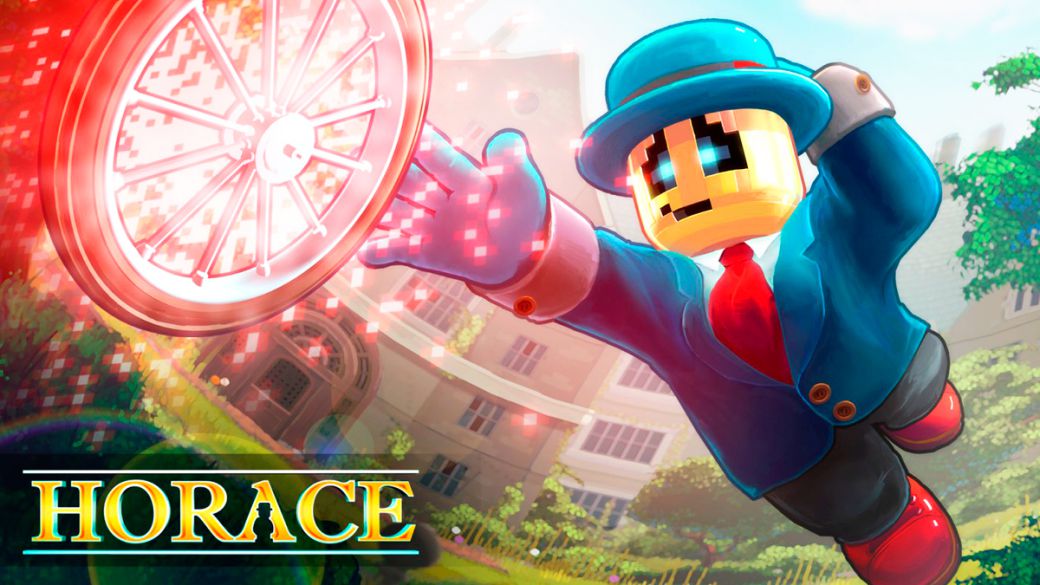
We analyze Horace, a video game by Paul Helman that has surprised us with its strong commitment to narrative and a gameplay that does not stop growing at every step
Unique and amazing. Those are the first qualifiers that come to mind after playing Horace. It is something that you have to take into account, because we assure you that the images that you have been able to see do not do justice to this great little treasure. Yes, you can intuit something else in the relevant launch trailer. There we observe part of the huge and heterogeneous amount of things that it keeps inside. Likewise, what you can see in that video is just the tip of a huge iceberg brimming with virtues. Stay with us for a moment in this Reviews, we have no doubt that, after reading the text, we will have aroused your curiosity to play it. We assembled the last piece of the robot and started walking.
The accumulation of references as a form of identity
Classical music as a soundtrack, literary quotes to open each chapter, references to John Carpenter’s Halloween Night, Douglas Adams (The Hitchhiker’s Guide to the Galaxy), Pinocchio, Asimov’s robots, Artificial Intelligence teddy bear, history from painting from the caves of Altamira to Dalí through Munch or even Leonardo Da Vinci, that of video games starting from Tennis for Two and Pong with stops in Sega arcades, joints, hallucinogenic mushrooms, the Thus Spoke Zarathustra of Strauss creating ties with the lysergic end of 2001 A Space Odyssey… All this and much more is referenced in Horace in his first half hour of play! We believe that it is due to the author of the work. Paul Helman turns these scattered elements into a metanarrative, and the start with the pixelated image of the old television production company Thames in which we read his name is already a declaration of principles.
Because such a cataract of data can only start from a firm, conscious and, without any doubt, personal purpose: neither more nor less than to put in your work all the audiovisual material that has helped define you as a person, as a creator. It can be a fleeting wink, like that warehouse that we cross in two seconds in which dusty air-skate and Nike from Back to the Future 2 coexist with the Ark of the Covenant, or something that is assimilated to mechanics and narrative, such as several phases that we play, with the colors and shapes of the Spectrum games, on an old tube TV shaken by the Queen of Hearts from Alice in Wonderland. It is therefore not a whim, because the result feels like a crazy tour inside someone’s emotional memories. And it is that identity is one of the great pillars of Horace.
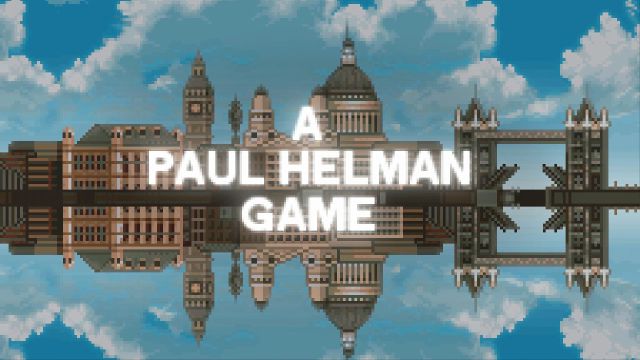
Do Androids Dream of Electric Sheep?
The robot Horace takes over from the Artificial Intelligence boy already turned into The Bicentennial Man. It is a pure and perfect being created by impure and imperfect human beings. Like his literary references, our vulnerable protagonist is not capable of thinking in folds in the face of deception or bad faith, it is difficult for him to catch jokes, he does not know evil, nor death … until it appears before him in the figure of his creator. His synthetic brain hangs for years in the face of something that he is unable to assimilate: the passage from existence to nothingness. And Horace dreams, during that long time disconnected from the world, that he pursues through clouds the unattainable image of his missing father. When you reconnect your mind, everything you knew around you has radically changed for the worse.
The narration is always in the first person, Horace’s monotonous synthetic voice tells us with the same tone what is happy and sad, family situations or dangerous ones. It is an objective and irony-free narrative powered by inane and mechanical diction, although questions arise over and over again. Horace continually wonders what is happening and why, but he rarely gets an answer. We guessed a figurative heart beating behind the cold plate of his chest, protected between tangled cables and springs. Because his words released aseptically by his voice synthesizer keep emotion, fear and love hidden between zeros and ones.
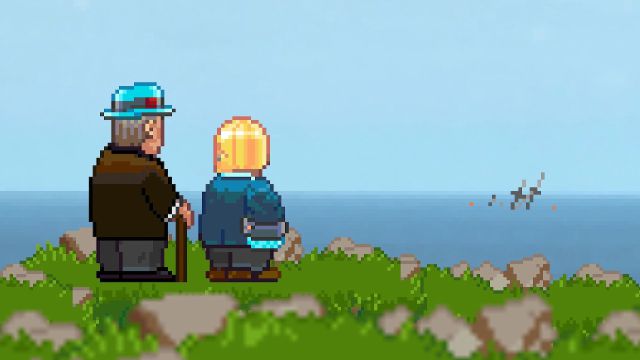
Pixelated emotions
Horace may look ugly at first glance. Its square scenarios, where everything is placed at the service of the gameplay, do not help at first to empathize with what we have just told. It’s when you play that magic happens. By the time we start touring those scenarios, we have already spent a while getting to know the diverse protagonists of the game. It is in short distances, in the mediums and close-ups when the classic narrative rules, that we see the feelings and emotions reflected in those pixelated faces.
The work of the animations is outstanding, and is capable of showing, with the slight variation of a few pixels, the double intentions in eyes that do not stop still, the doubt in a trembling thumb, the resignation in a face that denies, love in arched eyebrows and the smile that appears under them. Remember, all this based on moving a few pixels. The result is that it costs nothing to empathize, not only with Horace, but with the rich and diverse group of characters that accompany him.
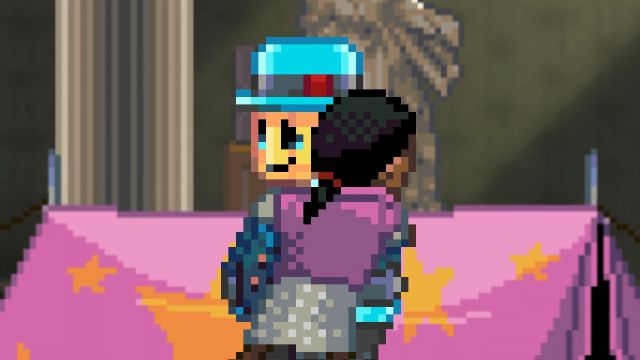
The mechanics of a mechanical world
Another of the great values of the game is its ability (which is not effort, such is the mastery it gives off) to show something new almost at every step. The basis of the gameplay are scenarios full of obstacles that kill us with a single touch. We have magnetic boots that continually redefine the playing field and the way we approach our actions. Floor, wall and ceiling change their roles and force us to adapt in terms of physics and gravity. Many times the solution to a situation is as simple as rethinking the scenario and acting accordingly.
The control is very fine, with jumps that respond perfectly to the intensity we want to give them. The levels progress in complexity in increasingly labyrinthine phases, getting closer to those of those games that suppose a real hell to advance. An effective roleplaying component will allow us to increase the number of touches we can receive. When the game sees that we are dying more than necessary, it gives us little by little orbs that will make our way more bearable. We can catch them or ignore them, something that will depend on the more or less hardcore profile of the player.
As we discussed above with the spectrum plan phases, we will have a multitude of variants in form and substance, such as brief first-person moments or car chases that give even more variety to the whole. For their part, the final bosses maintain the great general level with imaginative mechanics that even pull the spirit of the bullet hell to embitter our existence. Varied and of increasing difficulty, they rarely disappoint.
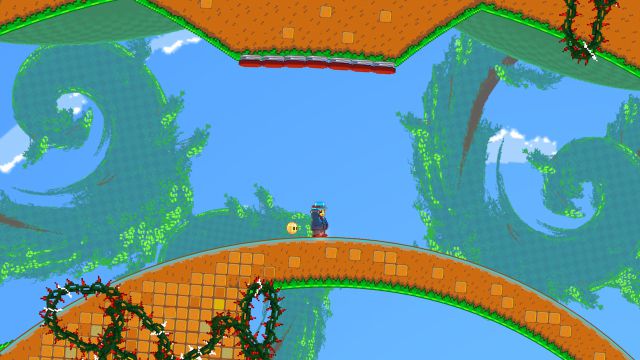
The map to a train stop
The 2D nature of the game makes getting around more and more complicated as we progress through our adventure. We can travel by train through four stations on a map. In each of them we can find places where we can sell the scrap metal that we have been cleaning around the world (Did someone say Wall-E?) And, with the money collected, go promoting the virtues of our robot. To get extra money, we can respond to job offers from the post office, restaurants, a brick factory … The fact is that even this is fun, because it is done based on musical and rhythm mini-games with great background melodies . We will also find arcade rooms where, for a few coins, we can play games of emuls from Out Run, Space Invader, or After Burner.
With a bit of luck, after more than ten hours behind us, we will find a cinema that will activate an extensive gallery in the main house in which the unlocked videos will appear and a jukebox in which to listen to the soundtrack. The huge number of boxes to unlock will give us an idea of the enormity of the title. Along the way, the increasingly difficult fight to reach the end will be enlivened by tons of references. Did you think that these stopped appearing after the prologue? Well, hold on tight, because it’s a whole metagame in which we find Fritz Lang’s Metropolis, the ear scene in Reservoig Dogs, the bad Shark from the Bond movies, The Wizard of Oz, Elthon John, The car fantastic, the Volkswagen Herbie, the Wilson ball from Shipwrecked, the Friday the 13th mask, Metallica, the football game between trenches from World War I, the spirit detector in Ghostbusters, Big’s wish machine, Green Day, the Star Wars cantina with its grumpy bartender, the legendary television interview with Richard Nixon, Monty Python, Metal Gear Solid, quotes from Sakespeare, Alexander Dumas, Benjamin Franklin, ahem, Princess Diana, etc, etc, etc.
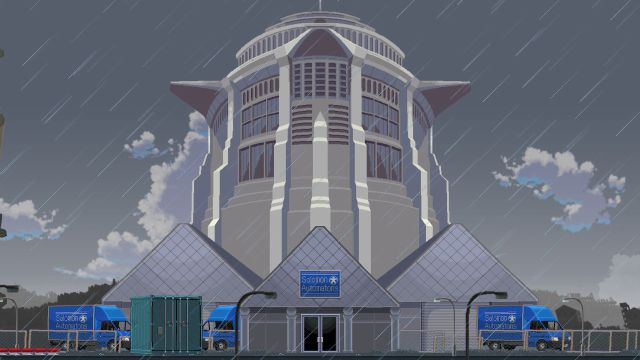
The robotic but sensitive protagonist builds himself on the basis of adding memories, as many as those that the author of the game has accumulated throughout a lifetime. If we are what we see, what we hear, what we create, the art that has marked us, what we feel and live, after more than nine years of hard work Paul Helman gives us a monumental biopsy with Horace. Also a message: We can be better human beings, always.
Grade: 8
CONCLUSION
Horace is capable of surprising at every turn. It continually offers radically new things in the form of mechanics or scenarios. It is a 2D pixelated platform that bets on a strong narrative component. The excellent work in the design of the characters makes us fully enter a humanistic story from the innocent gaze of a robot. The hundreds of references to culture (video game, literary, cinematographic, television, pictorial, musical) permeate everything to the point that they become one more layer of the narrative. It is an incredibly varied game, demanding but fair, a small classic at the height of its cultural references. Worthy successor to Pinocchio or The bicentean man. Curious, sensitive, noble… The Horace robot is not made more human by wearing a suit, tie and bowler hat, but by his huge and pure heart.
THE BEST
- Even though it is a long and enormous game, it is capable of surprising us from beginning to end.
- Refined and exquisite pixel art that masterfully conveys the emotions of the characters.
- The huge amount of cultural references is a metalanguage that is assimilated to the message of the game itself.
- Precise control, variety, complexity, challenging final bosses, imagination in abundance, difficult but fair… Playable it is a joy.
- His strong commitment to narrative overflows with sensitivity and humanism.
WORST
- As it unfolds, teleportation points are missing.
- Don’t give it a chance.
